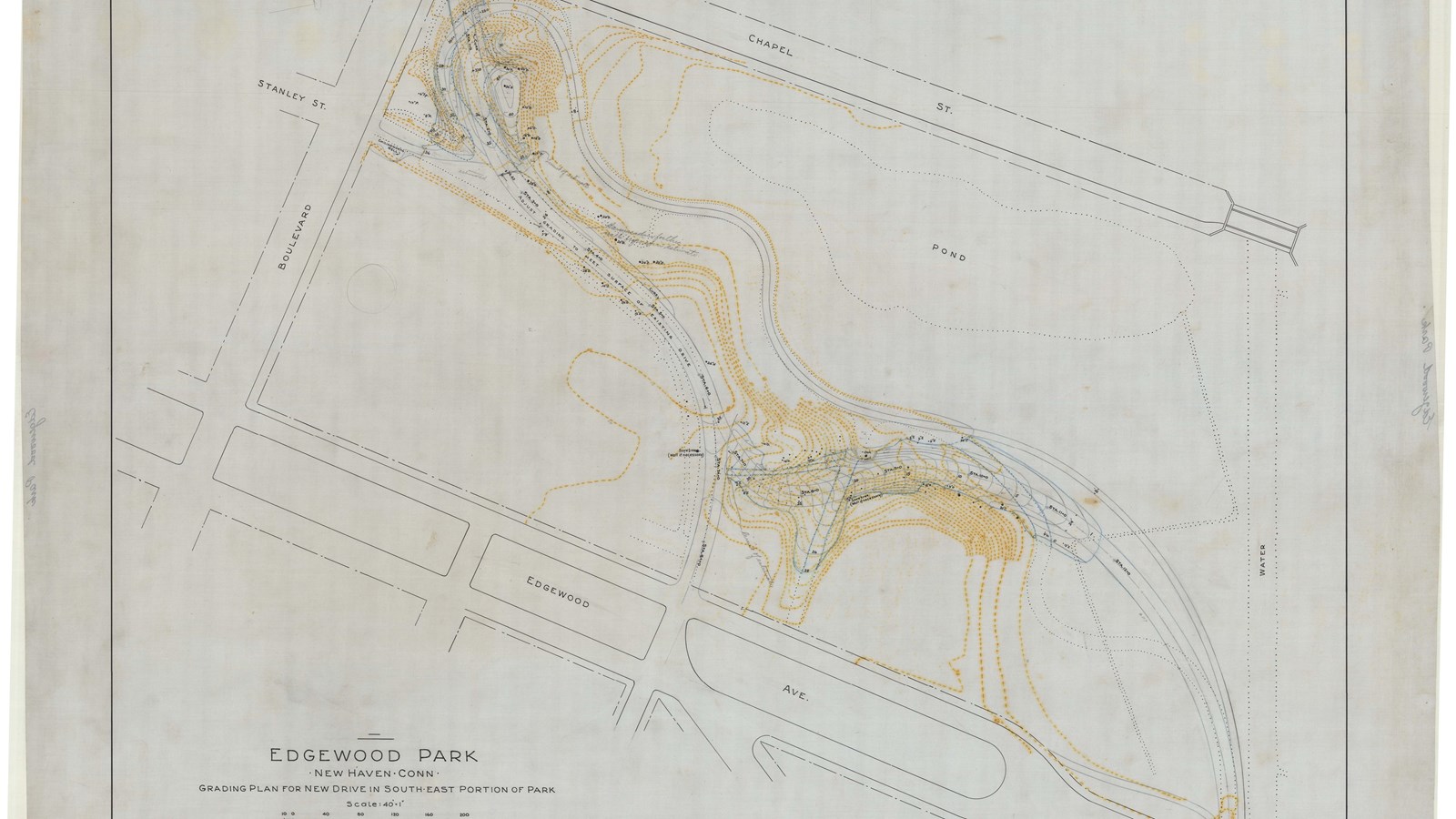Last updated: June 5, 2024
Place
Edgewood Park

Olmsted Archives
Quick Facts
In 1910, Frederick Law Olmsted Jr. was tasked with designing Edgewood Park in New Haven, Connecticut. In his lengthy report that year to the Civic Planning Committee of New Haven, he wrote that “If the people of the city… are to have the benefit of a place where they may habitually get a little healthful recreation out of doors under agreeable and refreshing surroundings… if the children are to be able to make such use of a playground; if their elders are to get with tolerable frequency even a little walk in the park or square for air and for refreshment from the dulling routine of life in factory, store, office, and cramped dwelling house or flat; if the mothers are to get out occasionally to a pleasant park bench with their sewing or what not, while the children play about them: then facilities for this sort of recreation must be provided within easy walking distance of every home in the city. Any plan that deliberately stops short of such provision…. Is in so far illogical, unjust, undemocratic and unwise.”
Olmsted Jr., as his father taught him, was committed to provide refuge and recreation away from city life. When Edgewood Avenue, with its busy traffic, began creeping too close to the park, Olmsted Jr. believed “its inharmonious character should be modified by properly planned grading and planting of its slopes.”
Source: "Edgewood Park," Olmsted Online
For more information and primary resources, please visit:
Olmsted Research Guide Online
Olmsted Archives on Flickr
Olmsted Jr., as his father taught him, was committed to provide refuge and recreation away from city life. When Edgewood Avenue, with its busy traffic, began creeping too close to the park, Olmsted Jr. believed “its inharmonious character should be modified by properly planned grading and planting of its slopes.”
Source: "Edgewood Park," Olmsted Online
For more information and primary resources, please visit:
Olmsted Research Guide Online
Olmsted Archives on Flickr
